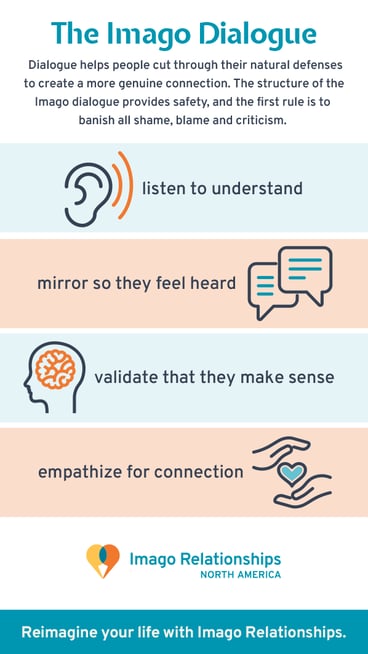
At face value, there is no greater mystery and irony than being with another person in an intimate relationship and feeling completely alone.
A large part of feeling lonely in relationships relates to cultural, commercial, and advertising messages. We are told through greeting card companies, popular music, romanticism about weddings and couples’ resorts, classic literature, and more than being a couple is the highest relational goal.
This romantic standard planned for in our childhood includes ideas such as
-
"When I have a boyfriend, I will be happy."
-
"When I have a girlfriend, I'll be complete!"
-
"When I get engaged, I'll be happy forever!"
-
"When I get married, I'll never be lonely again!"
Cultural messages perpetuate the myth that our future life of official marriage, engagement, or cohabitation will automatically equal a lifelong feeling of closeness. This creates an unrealistic expectation that to achieve and maintain the connection in our relationships, we don't need to participate in every stage actively. Hence the term, “Happily Ever after…”
In Imago Relationship Theory, we encourage the concept and practice of an intentional and conscious relationship. This means that we help each partner understand that their relationship is an active, organic, and dynamic creation.
At every point in time, we are engaging (continuously) in its survival. By leaving our relationship unattended, it will yield an unhealthy and undernourished organism. Focusing on an intentional relationship means mindfully practicing the skills of connection. This can be done through an exercise known as the Imago Dialogue. The process of mirroring is key to the dialogue process.
In mirroring, we repeat messages our partner shares until they feel completely heard and understood. Couples find this tool extremely helpful for focusing their attention on one another, and they become skilled in developing an understanding with compassion.
The reason for loneliness in most relationships is that partners feel they are not fully heard or understood by their partners. This quickly leads to the tendency to create inner stories about why they aren't connecting. These stories become filled with details each partner creates based on feelings they have about themselves as worthy or unworthy of being heard.
Imago strives to help partners achieve connection, which is the opposite of loneliness. Developing and practicing the art of connection through Imago Dialogue helps partners completely understand one another and themselves.
The default coping style of making conclusions and assumptions about what our partner is thinking and experiencing is interrupted with intention in the dialoguing process. Ultimately with practice, partners can do this outside of the therapy structure.

So, how can you feel less lonely in your relationship? Both partners need to work together to recognize the pain and friction they experience is based on being out of sync.
Synchronous relationships are not about feeling and believing the same way about all things. They are about developing a compassionate understanding of one another and having that understanding evolve as the relationship continues.
Loneliness can often be about our perceptions. Striving to examine these notions and uncover truths through our relationship, we can find happiness below the surface.
Watching partners discover that ah-ha moment of mutual understanding and empathy is one of the most rewarding aspects of being an Imago Therapist.
If you're struggling with feeling lonely in your marriage or relationship, we're here to help. Check out our Imago Relationship workshops and therapy. We also have Online Couples Therapy and Online Couples Workshops right now!
Discover more about Imago with our Imago Professional Membership, Imago Professional Facilitators, Imago Professional Training and Imago Educational Webinars.
 This blog post was written by Aviva Chansky Guttmann, LMSW, CIRT, an Advanced Imago Clinician and Safe Conversations Facilitator practicing in the Mid Hudson Valley, in New York.
This blog post was written by Aviva Chansky Guttmann, LMSW, CIRT, an Advanced Imago Clinician and Safe Conversations Facilitator practicing in the Mid Hudson Valley, in New York.
Her background includes several areas of practice including medical social work, energy psychology, sex therapy and EFT ( Emotional Freedom Technique-tapping).
Aviva facilitates and launched the Red Hook Holistic Practitioners‘ Support and Connection Group and an Empath Support Group. She offers educational workshops about Imago and Safe Conversations to community groups and teaches safe dialoguing techniques in adult continuing education settings.
Check out her website today!


